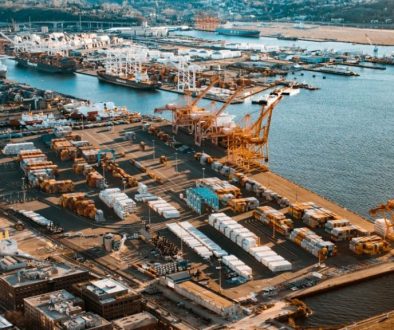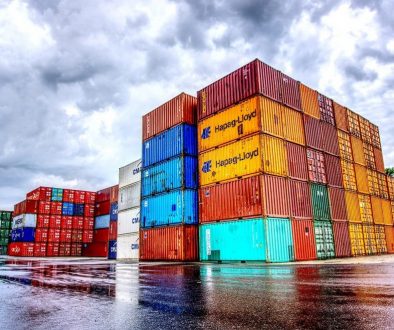Maritime Anti-Corruption Network (MACN) to hold Roundtable Session on “Service Delivery at the Nigerian Ports”
Maritime Anti-Corruption Network (MACN) to hold Roundtable Session on “Service Delivery at the Nigerian Ports”
The Maritime Anti-Corruption Network (MACN), represented in Nigeria by the Convention on Business Integrity (CBI), is set to host a roundtable session themed, “Towards Standard Operating Procedures That Work in Nigeria’s Sea Ports & Terminals” on Tuesday, October 8th, 2019.
The Maritime Anti-Corruption Network (MACN) is a global business network working towards the vision of a maritime industry free of corruption, enabling fair trade to the benefit of society at large. In collaboration with CBI, MACN broadened its collective action in the fight against corruption under the Business Action Against Corruption (BAAC) mandate.
Context
In 2012, the MACN, in collaboration with the United Nations Development Programme (UNDP), the Technical Unit on Government and Anti-Corruption Reforms (TUGAR), and the Independent Corrupt Practices and Other Related Offences Commission (ICPC) commissioned a corruption risk assessment (CRA) in the Nigerian port sector.
The assessment set out to understand the main drivers of corruption in the sector, identify specific measures for addressing such drivers, and catalyze action among public and private sector stakeholders.
The Corruption Risk Assessment report made specific recommendations for action to eliminate corruption in the Nigerian port sector. Amongst the recommendations was a proposal for ethics training and capacity-building programs to strengthen transparency and accountability of port stakeholders.
As part of its collective action programme, in 2016 MACN contracted the CBI to lead the training of ports officials on professional ethics. Pursuant to this, the CBI conducted a round of ‘Training of Trainers’ in Lagos (Apapa and Tin-Can Island ports), Port Harcourt (Onne and Rivers Port Complex), and Calabar Port between 2016 and May 2017. Thereafter, an end-user training was conducted for over 1000 stakeholders in the Ports between November 2017 and March 2018.
In August 2019, CBI released its Ports User Survey Report following a customer survey done in December 2018. The report addressed the following issues:
- The lack of clear procedures and processes backed up by relevant laws (including obsolete laws and procedures) in many areas of port operation including such processes as Temporary Imports, Permanent Imports, Midstream Discharge, Emergency Importations (Hand carry policy) etc.
- Exercise of discretionary powers by Customs officers, port agencies, Terminal Operators, and Stevedoring Companies including the discretionary powers to impose customs duties and tariffs, classification of goods, port charges and the potential disruption of operations of companies that depend on the ports for the importation of critical parts and goods for their operations.
- Existence of a system of bottlenecks made possible due to wide discretionary powers of port officials and the likelihood for such powers to be used to create opportunities for graft and extortion of port users.
- Payments for services not rendered by port agencies including the dredging of waterways by port users, payment to Stevedoring companies without any services being rendered, collection of pilotage fees in areas outside pilotage districts including international waters etc.
- Lack of awareness of port users on the existence of the port agencies SOP.
- Absence of complaints/feedback desks/redress mechanisms and the effectiveness of such where available.
One of the recommendations proposed is the need for experience sharing sessions among Nigerian ports/terminals, customers/users, officials/officers, management, government and their West African/European counterparts, in order to enable the Nigerian groups to learn how to build and deploy integrity, anticorruption governance strategies and build a positive business environment going forward.
Specifically, the objective of this MACN event is to launch a series of interventions aimed at promoting transparency and the consistent application of Standard Operating Procedures leading to more predictable (in time and cost) vessel and cargo clearance at the Ports & Terminals.
Stakeholders at the event would also have an opportunity to be part of ongoing collective action to improve the effectiveness and efficiency of our ports and terminals.
Details of the Round-Table Session
Date: Tuesday, October 8th, 2019
Venue: The Providence by Mantis Hotel- 12A Oba Akinjobi Way, Ikeja GRA, Lagos (Same Street with Archbishop Vining Memorial Church Cathedral by Sobo Arobiodu Roundabout).
Time: 9.30am (Registration starts at 9am)
Target Participants
Expected guests at this event include Directors General/CEOs of Port Agencies, Relevant Regulatory Agencies, The Private sector, Port users as well as the General Public.
Contact Details
Please do not hesitate to contact:
Yinka Johnson (07013715571) yinka.johnson@cbinigeria.com; and
Kitan Babalola (08067829272) kitan.babalola@cbinigeria.com
You can also join the conversation on our social media platforms @CBiNGR @IntegrityNGR and @BAAC_Nigeria using the hashtags #CBiMaritime and #CBiRoundtable
About CBi
The Convention on Business Integrity (CBI), a Company Limited by Guarantee is the private sector facing arm of the Integrity organisation. CBi was launched in October 1997 and incorporated as a company limited by guarantee in May 2003. The organization was established with the mission of promoting ethical business Practices, transparency and fair competition in the private and public sectors. It builds coalitions and develops sustainable strategies for citizen involvement with government in both sectors.
About MACN
The Maritime Anti-Corruption Network (MACN) is a global business network working towards the vision of a maritime industry free of corruption that enables fair trade to the benefit of society at large. Established in 2011 by a small group of committed maritime companies, MACN has grown to include over 100 members globally, and has become one of the pre-eminent examples of collective action to tackle corruption.



